
Featured Blog | This community-written post highlights the best of what the game industry has to offer. Read more like it on the Game Developer Blogs or learn how to Submit Your Own Blog Post
Balancing Randomness with Player Choice
My thoughts on balancing the unpredictability and lack of control caused by randomness in a game by providing facets for player decision making.

The Scenario:
Recently, through great struggle, I convinced my roommates to try playing a tabletop roleplaying game. I picked up a DnD 4e Red Box from a local game store but, after reading through the basic rulebook, realized my friends would probably lose their tiny speck of interest somewhere in the complexity of the rules. So I made my own simplified character sheets that only tracked each player’s level, hit points, and attributes (Actions is an idea for a future game mechanic that was left in the sheet).
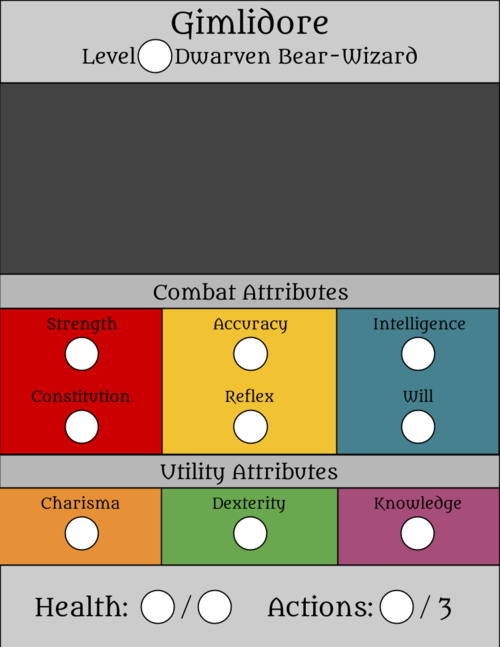
Then I broke the entire game down to one single core mechanic: player tells DM their action, DM challenges them with an attribute roll check. Oddly enough, we all had a great time.
A single turn looked something like this:
DM: The party is under attack by one goblin archer and two hobgoblin fighters. The party is positioned as described by the game board.
Gimlidore the level 1 Dwarven Bear Wizard: I use wind magic to propel my spear at the goblin.
DM: OK, I you need an Intelligence roll of 22 to successfully cast your wind magic spell, then an Accuracy roll higher than your enemy’s Reflex roll to determine the damage dealt.
With this mechanic, my friends can be as ridiculous and obscure and intoxicated as they want; I can just reply with what I consider to be a balanced roll challenge and the game becomes a story dictated by my friends' imaginations and distorted by the luck of the dice. However, I found that the interest and fun of the game stumbled when streaks of bad luck struck players, or players didn't get the outcome they wanted from a die roll on an important turn.
The Issue:
Often my friends would get a high dice roll on a simple action like swinging a weapon, then an abysmally low dice roll when they wanted to do something epic like push some enemies off of a cliff. The issue here is that the curve of positive and negative RNG (random number generation) sometimes fell out of sync with the players' bursts of imagination. By that I mean, sometimes they haven't thought of something new and exciting to do with their turn, so they do something simple. Other times, they have a sudden idea, like they want to throw a torch on the wall at a goblin.
When the roll passes or fails on the simple idea, the players' interest level remains stationary. The game progresses, but nothing exceptionally interesting happens. When the roll passes on the novel idea, the players cheer and scream with excitement. If, however, the roll fails on the novel idea, the players' interest drops immensely. My game is an imaginative one; I should award my players for coming up with awesome ideas. Therefore, I needed a balanced system to let the players decide which of the rolls were most important.
The Solution:

I chose to implement a mechanic similar to the "Get Out of Jail Free" card in Monopoly. In that game, if a player acquires the "Get Out of Jail Free" card, they can choose to consume it in order to skip jail time (a possible negative outcome of a move roll or card draw). In my game, I implemented a consumables system called "Potions" in keeping with the core fantasy setting:
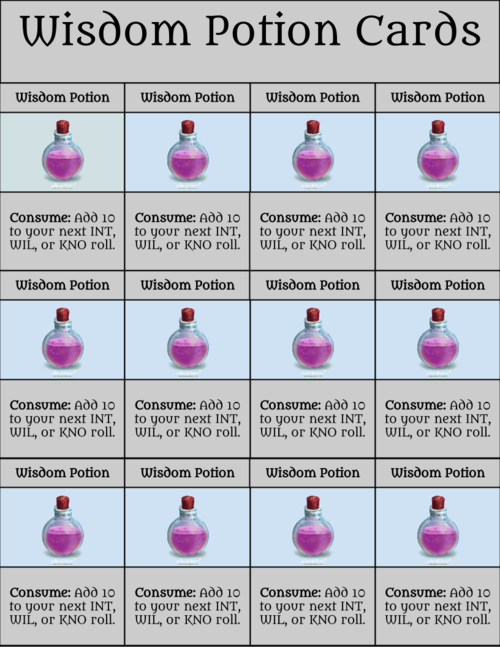
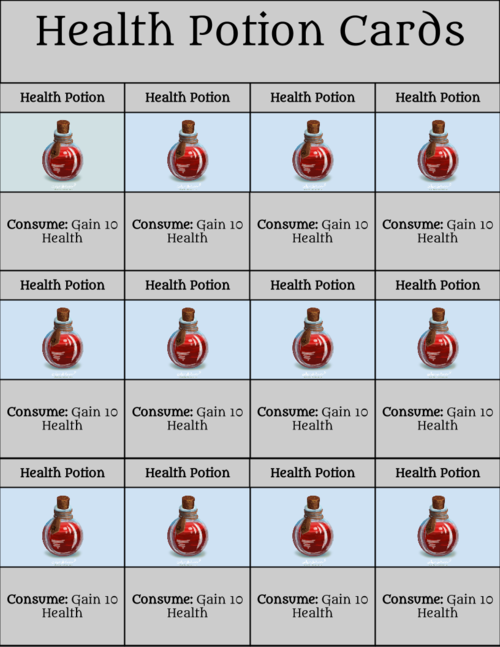
This way, the players periodically (as often as I see fit) get the choice to win a roll offensively with attribute Potions or defensively with Health Potions. The exciting parts of the game occur more frequently, while the emphasizing lull in interest RNG produces isn't sacrificed.
The Lesson:
Random Number Generation by definition has negative and positive outcomes and thus creates a flux between interest and disinterest in your game to supplement longevity. Streaks of bad luck or bad luck at bad times can cause your players to get fed up with the system, so it's important to balance RNG with player choice. Players need a break from randomness, the gambling appeal doesn't apply indefinitely to everyone.
How Is This Accomplished In Video Games?
Path of Exile: Orbs and Crafting Currency
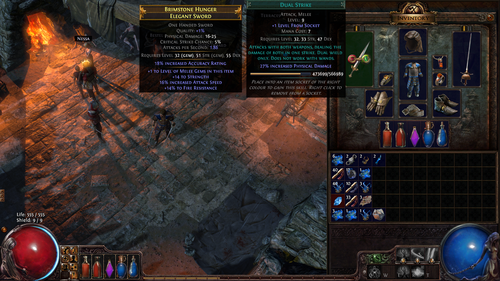
In Grinding Gear Games' ARPG Path of Exile, equipment the player gathers from progressing through the game is enhanced by randomly choosing from different sets of possible affixes. For example, I could find a sword, and that sword would randomly be allocated the affixes "+14 Strength" and "+14% Fire Resistance". If my character needs Strength and Fire Resistance, that sword is awesome, but if my character is, say, an Intelligence-based spell-caster, that sword is near useless to me. This system generates excitement because well-fit and strong equipment is thrilling to acquire, but when someone plays for a long time without any upgrades gameplay becomes both stale and unnecessarily difficult.
To address the issue, Grinding Gear Games included a currency system where players can acquire consumables that add to or re-roll the properties of items.
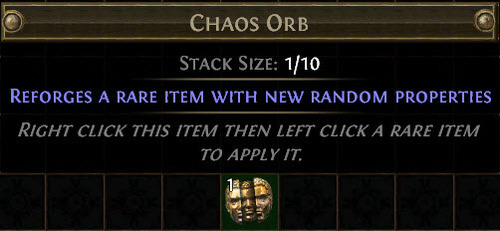
Note that this system does not achieve the same functionality as the exception-based "Get Out of Jail Free" card mechanic. Spending a "Chaos Orb" does not grant the player a free powerful item tailored to their character, it merely gives them a chance at a new roll. Thus, the currency system in Path of Exile enables players to concentrate their RNG and statistically improve their chance to get valuable equipment when and where it means the most to them. Simultaneously it allows them to trade both consumables and equipment for exactly what the want, but that's a topic for another discussion.
And Alternative Solution in Video Games
Guild Wars 2: Consistent Progression Rewards
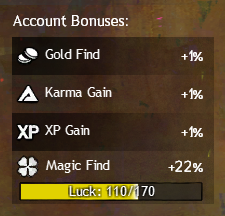
Guild Wars 2's reward system is designed around RNG. On top of the traditional MMORPG reward system of loot, the game rewards players for playing social activities, hunting for in-game Achievements, and completing dynamic events with RNG-based rewards.
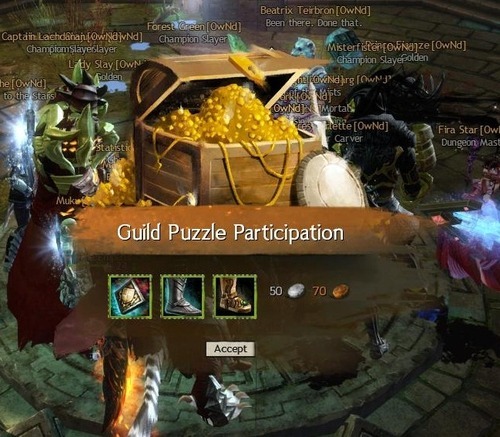
Much like Path of Exile, this system can cause players to receive rewards that are near-useless to them because they aren't usable or aren't efficient for their particular class or role. Where Grinding Gear Games designed a mechanic to allow the players to control their RNG, ArenaNet opted to supplement the negative aspect of random loot with consistent, progressive rewards through an account-wide progression mechanic. As players loot and salvage equipment they don't need, they gain Essences of Luck, which they can consume to gain a minimally increased chance to gain rare items from loot.
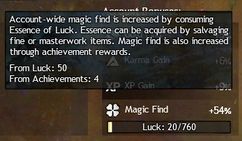
This system resolves the downside of designing a game based on RNG by providing the players with a sense of reward even if their luck is failing them because they are always progressing and empowering their character indefinitely.
Conclusion
Always remember that, in game design, implementing any sort of randomness in your game needs to be a conscious choice counterbalanced by some other mechanic that is entirely in the players' hands. Understand that allowing a player choose to let randomness impact their decision making immediately establishes the mechanic as a risk-reward system. Let them choose when they roll. Let them choose what to do with their roll. Let them choose to avoid the roll entirely, or let them choose to roll exclusively as a bonus. If your game has no balance to randomness it becomes a gambling game, with all the ups and downs that associates.
Thanks much for reading.
~ Wes
Read more about:
Featured BlogsAbout the Author(s)
You May Also Like







.jpeg?width=700&auto=webp&quality=80&disable=upscale)








